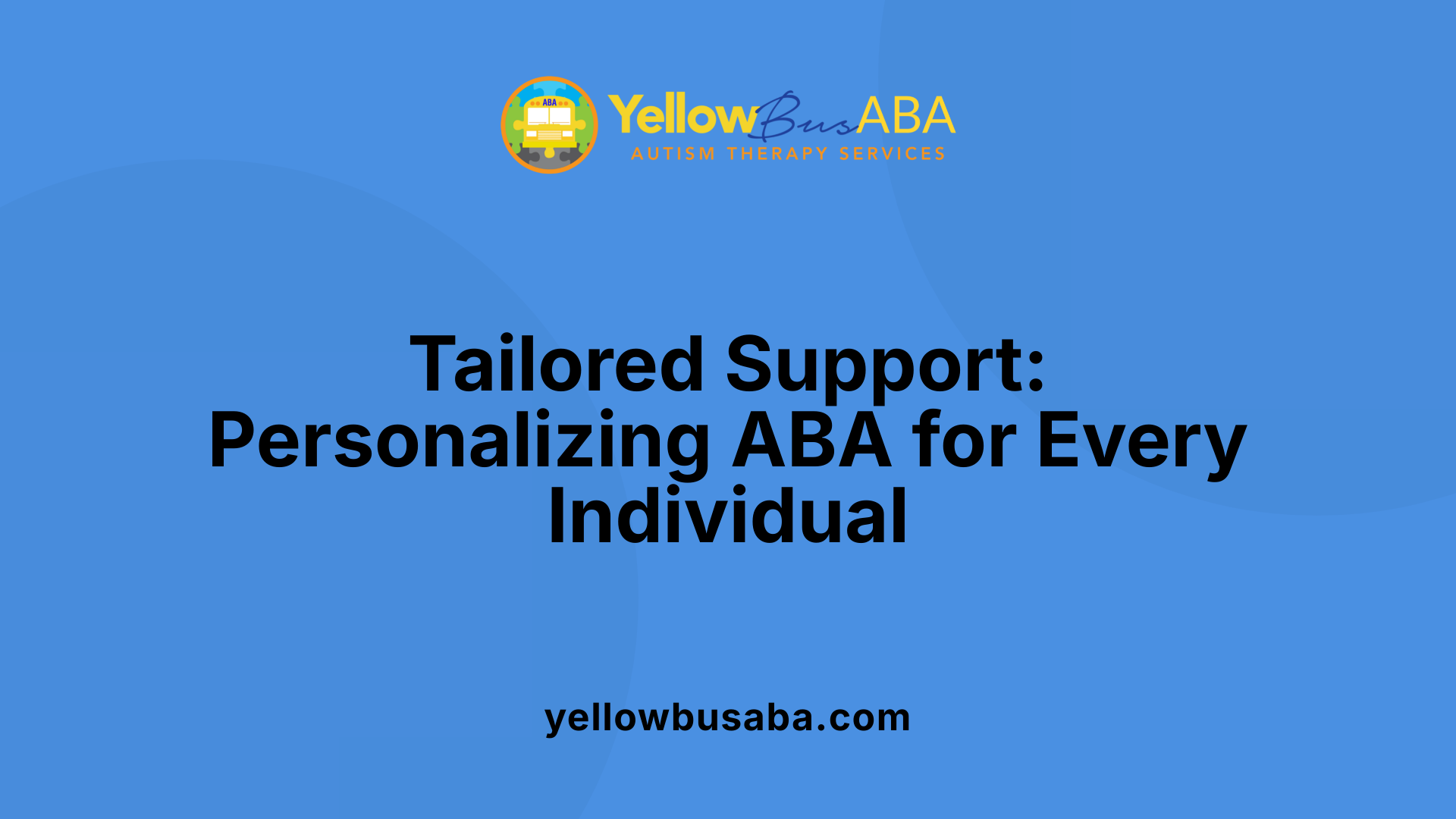The Transformative Power of ABA for Young Adults with Autism
Applied Behavior Analysis (ABA) therapy is widely known for its effectiveness in supporting children with autism, particularly in early developmental stages. However, its benefits extend well into young adulthood, where it continues to play a critical role in teaching complex social skills such as conflict resolution. This article explores how ABA therapy equips young adults on the autism spectrum with the necessary tools to navigate social challenges, manage conflicts constructively, and thrive in various life settings including work and community environments.
Understanding Applied Behavior Analysis Therapy
What is behavior analysis therapy and how is it used in treating autism?
Behavior analysis therapy, more commonly known as Applied Behavior Analysis (ABA), is a scientifically supported intervention designed to help individuals with autism spectrum disorder (ASD) enhance beneficial behaviors while reducing those that may be harmful or interfere with learning. ABA therapists study the context surrounding behaviors by examining antecedents (what happens before) and consequences (what happens after).
Core principles of ABA
ABA is grounded in behavior analysis, a methodology based on operant conditioning. It utilizes techniques such as:
- Positive reinforcement (giving praise, treats, or preferred activities) to encourage desirable behaviors
- Task analysis to break down complex skills into smaller, manageable steps
- Prompting and fading to support skill acquisition and enhance independence
- Generalization strategies to ensure skills apply across different environments, like home and school
Application in autism treatment
ABA therapy usually begins early, often between ages 2 and 6, capitalizing on critical periods of brain plasticity. Under the guidance of a Board Certified Behavior Analyst (BCBA), individualized plans are made according to each child's needs, focusing on developing communication, social, motor, academic, and daily living skills. Research consistently demonstrates that early intensive ABA leads to improvements in language, adaptive behaviors, and social functioning, with sustained benefits when skills are generalized and families participate actively.
Techniques used in ABA
Various ABA methods support learning, including:
- Discrete Trial Training (DTT), which involves structured teaching in short, repeated trials
- Natural Environment Training (NET), which promotes skills acquisition in typical daily settings
- Functional communication training to replace challenging behaviors with appropriate communication
- Token economies and activity schedules for motivation and routine establishment
Together, these approaches ensure that therapy is not only effective but tailored, flexible, and ethical, focusing on enhancing independence and quality of life for autistic individuals.
Role of Professionals in Delivering ABA Therapy

Who Provides Behavior Analysis Therapy for Individuals with Autism?
Applied Behavior Analysis (ABA) therapy is delivered by trained professionals, primarily Board Certified Behavior Analysts (BCBAs) and behavior therapists. BCBAs conduct comprehensive assessments and develop individualized intervention plans tailored to each person's unique strengths and challenges. These certified experts ensure the therapy uses scientifically proven methods such as reinforcement systems and task analysis to promote skill development and behavior modification.
Role of Board Certified Behavior Analysts (BCBAs)
BCBAs are central to ABA therapy, responsible for designing, supervising, and adjusting treatment programs. They perform detailed functional assessments to identify behavioral antecedents and consequences, implement appropriate strategies like prompting and fading, and monitor progress through data collection. Their expertise guarantees that ABA interventions are ethical, effective, and aligned with best practices.
Multidisciplinary Teams
Often, ABA is delivered as part of a broader, multidisciplinary approach. Other specialists, including occupational therapists, speech-language pathologists, psychologists, and educators, collaborate with BCBAs to address the diverse needs of individuals with autism. Such teams work together to enhance communication, social, motor, academic, and daily living skills. Family involvement is also an integral component to maximize therapy effectiveness.
Settings for Therapy Implementation
ABA therapy is versatile and can be provided in various environments such as homes, schools, community settings, and clinical centers. This flexibility allows for generalization of skills across different contexts, ensuring that gains made in therapy translate into real-world improvements. Agencies like Behavior Analysis, Inc. offer in-home and telehealth ABA services to meet different family needs.
| Aspect | Description | Additional Details |
|---|---|---|
| Primary Providers | BCBAs and behavior therapists | Design and oversee individualized ABA programs |
| Multidisciplinary Involvement | Occupational therapists, speech therapists, psychologists | Work collaboratively for comprehensive autism care |
| Therapy Environments | Home, school, community, clinics | Supports generalization and skill application |
| Family Participation | Integral role | Enhances outcomes through collaboration and support |
How ABA Therapy Is Personalized for Each Individual

How is behavior analysis therapy tailored to individual needs in autism treatment?
ABA therapy is designed to be highly personalized, beginning with a detailed functional assessment conducted by a Board Certified Behavior Analyst (BCBA). This assessment identifies each individual's strengths, challenges, and behavioral patterns to inform a customized intervention plan targeting specific areas like communication, social skills, daily living, and motor coordination.
The individualized intervention plans are built with clear, measurable objectives and focus on teaching new skills and reducing challenging behaviors. Techniques such as positive reinforcement, task analysis, prompting and fading are applied strategically to fit the unique needs of the child or young adult. These methods break complex skills into manageable steps, making learning effective and tailored.
Progress is closely monitored through objective data collection, allowing BCBAs to adjust the program as the individual develops. This ongoing review ensures that interventions remain relevant and successful over time. Equally important is the active involvement of families, who collaborate with professionals to reinforce skills across home, school, and community settings, supporting generalization of learning.
This personalized approach maximizes the potential for meaningful behavioral change and development, demonstrating ABA's effectiveness for individuals with autism spectrum disorder.
Conflict Resolution as a Critical Social Skill in Young Adults with Autism
Why Are Conflict Resolution Skills Important for Young Adults with Autism?
Conflict resolution is a vital social skill that helps individuals navigate disagreements and maintain relationships. For young adults with autism, mastering these skills is crucial as it supports better social interactions, reduces anxiety during conflicts, and promotes peaceful problem-solving.
What Challenges Do Young Adults with Autism Face in Developing These Skills?
Many young adults with autism experience difficulties in communication and social understanding, which can make conflict resolution challenging. They might struggle interpreting social cues, managing emotions, or expressing their thoughts clearly. These challenges can lead to misunderstandings and social isolation.
How Do Conflict Resolution Skills Affect Independence and Community Integration?
Developing conflict resolution skills enhances the ability of young adults with autism to participate actively in social, educational, and workplace settings. These skills foster improved communication and social adaptability, which are essential for independence and community involvement. For example, ABA therapy incorporates social skills training, helping individuals with autism handle interpersonal conflicts effectively.
By strengthening conflict resolution abilities, young adults with autism gain tools to build meaningful relationships, resolve disputes amicably, and increase their confidence in social environments, ultimately supporting greater independence and inclusion in their communities.
Teaching Conflict Resolution Through ABA Techniques
Use of Positive Reinforcement in Social Skills Training
Positive reinforcement is a foundational technique in ABA therapy, extensively used to encourage desirable social behaviors vital for conflict resolution. When children with autism demonstrate effective ways to manage disagreements, such as sharing, taking turns, or using polite language, they receive immediate positive feedback like verbal praise, tokens, or access to preferred activities. This reinforcement increases the likelihood that these socially appropriate behaviors will be repeated.
Applying Task Analysis and Prompting to Conflict Scenarios
Task analysis breaks down the complex process of resolving conflicts into smaller, manageable steps. For example, the sequence might include recognizing the conflict, pausing before reacting, expressing feelings clearly, listening to others, and seeking a solution. Therapists use prompting strategies, gradually reducing assistance as the child becomes more independent in following these steps. This structured approach supports learning and mastery of conflict resolution skills.
Role of Functional Communication Training
Functional Communication Training (FCT) plays a critical role by teaching children alternative communication strategies to express needs, emotions, and frustrations effectively. This reduces challenging behaviors that can escalate conflicts. For instance, teaching a child to request a break or ask for help instead of displaying aggression enables more constructive social interactions and conflict management.
Generalization of Skills Across Varied Settings
ABA therapy emphasizes transferring conflict resolution skills beyond therapy sessions to natural settings such as home, school, and community. Techniques like role-playing, natural environment training, and parent involvement help children apply learned skills in real-life social situations. This generalization ensures that children can navigate conflicts successfully in diverse environments, supporting their social integration and independence.
Real-World Applications: ABA in Workplace Conflict Management
How Does ABA Support Workplace Skills?
ABA therapy explicitly teaches vital workplace abilities by breaking down complex tasks into manageable steps. This methodical approach involves skill breakdowns and targeted instruction to enhance communication, social interaction, executive functioning, and vocational competencies. Behavior analysts develop SMART goals—specific, measurable, achievable, relevant, and time-bound—to promote skill acquisition in areas critical to professional success.
How Are Role-Playing and Work Simulations Used in Conflict Resolution?
The use of role-playing and work simulations in ABA allows individuals with autism to practice conflict scenarios in a controlled, supportive environment. These activities provide opportunities to rehearse appropriate social responses, problem-solving strategies, and emotional regulation techniques. By simulating workplace interactions, clients generalize these skills effectively, preparing them to handle confrontations and collaborate productively with coworkers.
How Does ABA Facilitate Collaboration with Employers?
ABA programs collaborate with employers by offering autism awareness training and advising on workplace modifications to foster inclusivity. This partnership ensures a better understanding of employees' needs and creates accommodating environments. Ongoing consultation and periodic check-ins allow adjustments to support systems, promote positive workplace dynamics, and uphold employee well-being.
What Long-Term Support Does ABA Offer for Job Retention?
ABA provides continuous monitoring through recurrent assessments and feedback sessions to adapt interventions as workplace demands evolve. Additional training addresses emerging challenges, strengthens coping strategies, and encourages sustained employment. This long-term support ensures individuals maintain job retention and progress toward greater independence.
| ABA Application Area | Description | Benefits for Workplace Conflict Management |
|---|---|---|
| Skill Breakdown and SMART Goals | Decomposing skills into small tasks with measurable objectives | Structured learning tailored to individual needs |
| Role-Playing and Simulations | Practicing real-life scenarios to develop social responses | Enhanced preparedness for conflict resolution |
| Employer Collaboration | Training and workplace adjustments for autism inclusivity | Improved understanding and support from coworkers and supervisors |
| Long-Term Monitoring | Regular assessment and adjustment of intervention plans | Sustained employment and adaptation to changing work challenges |
ABA therapy’s comprehensive approach equips individuals with autism to navigate workplace conflicts confidently, contributing to their professional growth and independent functioning.
Family Involvement and Skill Generalization
Why is parental participation important in ABA therapy for young adults?
Parental involvement is crucial in ABA therapy as it supports consistent learning beyond sessions. Families, through close collaboration with therapists, reinforce new skills and help embed them into daily routines. This partnership ensures that progress made during therapy continues and is sustained over time.
How are conflict resolution skills generalized to home and community settings?
ABA uses strategies like role-playing, natural environment training, and community-based practice to help individuals apply conflict resolution skills in varied settings. By practicing skills in multiple real-life contexts, clients learn to adapt and use these behaviors effectively in both home and community environments.
What benefits do integrated therapy approaches offer for sustained progress?
Integrating therapy with family participation and community involvement ensures that improvements are maintained long-term. This holistic approach addresses behavioral challenges in diverse situations, promoting independence in social interactions and employment. Ongoing support and skill generalization foster lasting positive changes.
Together, these elements create a robust support network that maximizes the impact of ABA therapy, empowering young adults with autism to thrive in everyday life.
Evidence Supporting ABA’s Effectiveness in Enhancing Social and Emotional Competence
Research findings on ABA improving social skills
Numerous studies have documented that Applied Behavior Analysis (ABA) significantly enhances social skills in children with autism. Research involving children aged 4 to 11 demonstrated measurable improvements in social interaction following ABA therapy sessions. These interventions focus on behaviors such as communication, social initiation, and reciprocal interactions, enabling children to build relationships more effectively.
Studies showing reduction in separation anxiety
ABA therapy also contributes to emotional regulation, specifically reducing separation anxiety. Data analysis from controlled studies shows children receiving ABA experience significant decreases in anxiety related to separation, which supports better adjustment in social and educational environments.
Meta-analyses confirming long-term benefits
Several meta-analyses and systematic reviews validate the long-term efficacy of ABA. These comprehensive analyses confirm that early intensive ABA leads to sustained growth in communication, adaptive skills, and emotional competence. The research aligns with endorsements from authorities like the U.S. Surgeon General and the American Psychological Association, highlighting ABA as an evidence-based approach with lasting positive outcomes.
Link between social competence and conflict resolution
Enhanced social competence through ABA is crucial for conflict resolution and effective social functioning. Skills developed during therapy—such as understanding social cues and appropriate communication—equip individuals to manage interpersonal challenges, reducing misunderstandings and improving social integration.
Overall, the evidence robustly supports ABA's role in not only improving core social skills but also fostering emotional well-being, which together contribute to greater independence and inclusion for autistic individuals.
ABA Therapy Beyond Childhood: Supporting Adolescents and Young Adults

How Does ABA Extend Benefits into Young Adulthood?
ABA therapy is not limited to young children; it offers substantial support for adolescents and young adults with autism as well. Its adaptable nature allows intervention goals to shift from foundational communication and social skills to more complex, age-appropriate capabilities. Research-backed ABA methods focus on enhancing higher-level social interaction and emotional competencies crucial for successful transition into adulthood.
In What Ways Does ABA Support Executive Function and Emotional Regulation?
During adolescence and young adulthood, ABA therapy helps develop executive functioning skills such as planning, organization, and problem-solving. Through individualized plans devised by Board Certified Behavior Analysts (BCBAs), behavioral techniques—including task analysis, prompting, and reinforcement systems—target areas impacting self-control and emotional regulation. Additionally, coping strategies and sensory accommodations are integrated to manage anxiety and sensory sensitivities effectively.
How Is ABA Used to Teach Vocational and Daily Living Skills?
ABA interventions for young adults emphasize practical skills necessary for independence and employment. Therapy includes breaking down workplace tasks into manageable components, combined with role-playing, work simulations, and mock interviews to support skill generalization across various settings. Collaboration with employers fosters autism awareness and workplace modifications, enhancing social and executive functioning in vocational environments. Moreover, long-term monitoring and ongoing support ensure adaptability to new challenges, assisting with sustained job retention.
Collectively, these approaches enable adolescents and young adults with autism to acquire essential communication, social, emotional, and vocational skills, facilitating greater independence and integration into community and work life.
Specialized Agencies Delivering ABA for Conflict Resolution Skills
Overview of agencies like Behavior Analysis, Inc.
Behavior Analysis, Inc. is a leading provider of Applied Behavior Analysis (ABA) therapy with decades of experience since 1994. Recognized as South Florida’s oldest behavioral agency and a globally respected entity, it specializes in treatment plans addressing autism and behavioral disorders. Their programs emphasize individualized ABA therapy that targets vital social, employment, and conflict resolution skills.
Role in personalized ABA programs for social and conflict skills
The agency develops customized treatment plans based on comprehensive assessments, ensuring each client’s unique needs are met. These plans focus on teaching language, communication, self-care, daily living, and workplace-related social skills needed for effective conflict management and resolution.
Training and education of professionals
Behavior Analysis, Inc. also dedicates significant efforts to training and educating professionals worldwide in ABA principles. This emphasis on professional development ensures high-quality service delivery and the advancement of evidence-based behavioral interventions.
Use of data-driven progress measurement
A central part of their approach involves the careful collection and analysis of objective data. Metrics such as words learned, behavior improvements, and skill acquisitions are tracked meticulously to monitor progress and adapt interventions accordingly. This data-driven methodology supports rapid gains, with some clients showing remarkable development, including cases of diagnosis removal.
Overall, specialized agencies like Behavior Analysis, Inc. play a crucial role in delivering evidence-based ABA programs aimed at enhancing social competence and conflict resolution abilities in young adults with autism.
Addressing Sensory and Anxiety Challenges Through ABA
How Does ABA Manage Anxiety in Individuals with Autism?
ABA therapy employs behavioral interventions that specifically help manage anxiety by teaching coping strategies tailored to each individual. Through structured programs, therapists use positive reinforcement to encourage the use of relaxation techniques and appropriate responses during stressful situations. This therapeutic focus helps reduce anxiety symptoms, enabling children and young adults with autism to better engage in learning and social interactions.
What Sensory Accommodations Are Provided During ABA Therapy?
Sensory sensitivities are common in autism, and ABA programs incorporate accommodations to create a supportive learning environment. These adjustments may include modifying the physical space to reduce overwhelming stimuli, using calming tools, and scheduling breaks to prevent sensory overload. By addressing sensory challenges directly, ABA helps maintain focus and comfort, which are crucial for effective skill acquisition.
How Are Coping Strategies Integrated into Conflict Resolution Training?
ABA therapy teaches coping strategies as part of social and conflict resolution skill development. Role-playing and natural environment training enable individuals to practice recognizing emotional triggers and applying learned techniques such as deep breathing or requesting breaks. These approaches empower learners to navigate social conflicts with reduced anxiety and improved self-regulation.
Behavioral interventions in ABA directly target the reduction of anxiety and adapting to sensory sensitivities. Combined with personalized coping strategies, this creates a comprehensive support system that enhances social, emotional, and daily living skills for individuals with autism.
Ethical Practices and Neurodiversity in Modern ABA Therapy

How has ABA therapy shifted from aversive methods to positive reinforcement?
Modern ABA therapy has made a significant ethical evolution, moving away from the historical use of aversive techniques, which were once common but are now widely rejected. Today's ABA practices prioritize positive reinforcement — using rewards such as verbal praise, preferred activities, and treats — to encourage desirable behaviors. This approach not only fosters a supportive learning environment but also aligns with ethical standards that respect the dignity of individuals receiving therapy.
How is respect for neurodiversity integrated into current ABA therapy goals?
Contemporary ABA recognizes and values neurodiversity, meaning it respects each individual's unique neurological makeup and seeks to support rather than normalize differences. Therapy goals are carefully designed to enhance communication, social interaction, and daily living skills without forcing conformity. By incorporating family input and individual preferences, ABA programs aim to empower clients while acknowledging and honoring their authentic selves.
How does modern ABA therapy balance skill development with individual identity?
While ABA focuses on teaching critical skills—such as vocational abilities, social competencies, and adaptive behaviors—it ensures these skills are applied in ways that support the person's identity and autonomy. Treatment plans are individualized and use SMART goals that emphasize meaningful, achievable outcomes. Therapists work collaboratively with families and clients themselves, promoting personal growth while sustaining respect for the individual's self-expression and neurodiverse traits. This balanced approach fosters long-term positive change without compromising individuality.
Future Directions: Enhancing Conflict Resolution Training in ABA Programs

Incorporation of Technology and Virtual Simulations
The integration of technology into ABA programs is a promising advancement to enhance conflict resolution skills among individuals with autism. Virtual simulations and interactive software provide safe, controlled environments where learners can practice social and communication skills without real-world risks. These tools allow customization to individual needs and can simulate diverse social scenarios, which supports generalization of skills to various settings.
Expanding Community-Based Interventions
To solidify conflict resolution skills within everyday contexts, there is growing emphasis on extending ABA services beyond traditional settings. Community-based interventions—such as role-playing exercises in public venues and natural social environments—have shown promise in helping individuals transfer their behavioral gains. Expanding these interventions encourages real-world practice and fosters greater social integration, improving adaptability in unexpected social encounters.
Ongoing Professional Development and Research
Continued education for ABA practitioners is vital to keep pace with evolving techniques and ethical standards related to conflict resolution training. Ongoing research supports the refinement of interventions by assessing effectiveness and exploring innovative methods. Professionals benefit from specialized training in conflict management strategies and up-to-date evidence-based practices, ensuring that ABA programs remain responsive to emerging needs and cultural considerations.
Through these future directions, ABA therapy aims to strengthen the acquisition and maintenance of conflict resolution skills, promoting more successful social interactions and independence for those on the autism spectrum.
Empowering Young Adults Through ABA for Lasting Social Success
Applied Behavior Analysis therapy stands as a powerful tool in equipping young adults with autism to handle social challenges, particularly in mastering conflict resolution skills. Through personalized, evidence-based interventions crafted and supervised by qualified professionals, individuals learn to communicate effectively, manage emotions, and apply these skills across real-life situations such as workplaces and community settings. With continued advancements in therapy techniques, ethical practices, and family involvement, ABA offers a hopeful path toward greater independence, social integration, and enhanced quality of life for young adults on the autism spectrum.
References
- What is Applied Behavior Analysis (ABA)?
- The effectiveness of applied behavior analysis program ...
- Applied Behavioral Analysis and Other Behavioral Therapies ...
- ABA Therapy: The Ultimate Guide
- A Treatment Summary of Applied Behavior Analysis
- The Role of ABA in Transitioning Young Adults with Autism
- About Us
- Applied Behavior Analysis (ABA)
- Children's Specialized ABA | Whole-Child Autism Care
- Applied Behavior Analysis (ABA)






